
-
Find the right food for your petTake this quiz to see which food may be the best for your furry friend.Find the right food for your petTake this quiz to see which food may be the best for your furry friend.Featured products
 Adult Sensitive Stomach & Skin Small & Mini Chicken Recipe Dog Food
Adult Sensitive Stomach & Skin Small & Mini Chicken Recipe Dog FoodHill's Science Diet Sensitive Stomach & Skin Small & Mini dry dog food is tailored nutrition for Small & Mini dogs while being gentle on stomachs. Nourishes skin & promotes a lustrous coat.
Shop Now Adult Light Large Breed Chicken Meal & Barley Recipe Dog Food
Adult Light Large Breed Chicken Meal & Barley Recipe Dog Food18% lower calories vs. Science Diet Large Breed Adult
Shop Now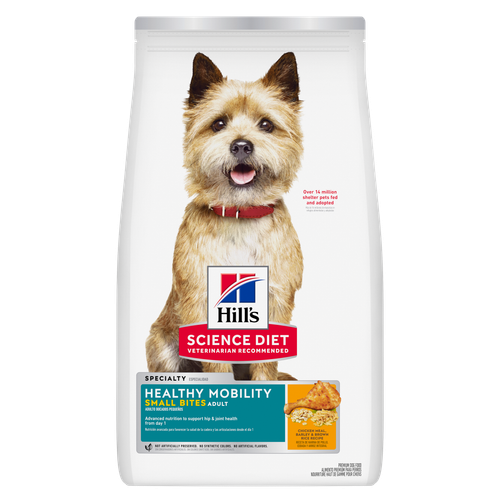 Adult Healthy Mobility Small Bites Chicken Meal, Barley & Brown Rice Recipe Dog Food
Adult Healthy Mobility Small Bites Chicken Meal, Barley & Brown Rice Recipe Dog FoodAdvanced nutrition to support hip & joint health from day 1
Shop NowFeatured products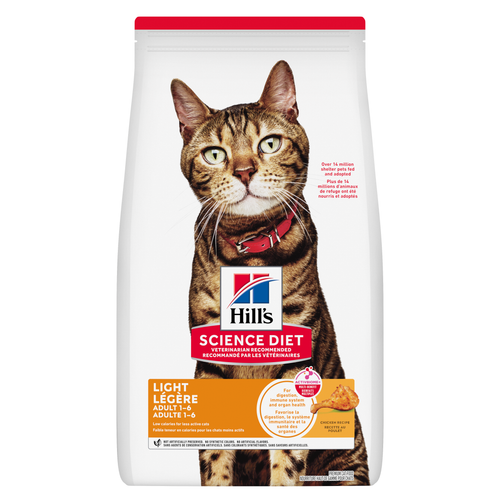 Adult Light Chicken Recipe Cat Food
Adult Light Chicken Recipe Cat Food20% lower calories vs. Hill's Science Diet Adult
Shop Now Adult Healthy Cuisine Seared Tuna & Carrot Medley Cat Food
Adult Healthy Cuisine Seared Tuna & Carrot Medley Cat FoodDelicious seared tuna paired with tender carrots in a mouthwatering sauce
Shop Now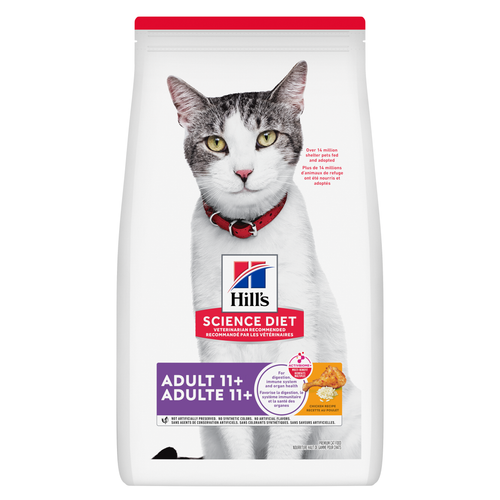 Adult 11+ Chicken Recipe Cat Food
Adult 11+ Chicken Recipe Cat FoodSupports brain health & beautiful fur. Helps keep immune system, heart & kidneys healthy.
Shop Now -
Dog
- Dog Tips & Articles
-
Health Category
- Weight
- Food & Environmental Sensitivities
- Urinary
- Digestive
- Joint
- Kidney
- Dental
- Cancer
-
Life Stage
- Puppy Nutrition
- Adult Nutrition
- Senior Nutrition
Cat- Cat Tips & Articles
-
Health Category
- Weight
- Skin & Food Sensitivities
- Urinary
- Digestive
- Kidney
- Dental
- Stress
- Cancer
-
Life Stage
- Kitten Nutrition
- Adult Nutrition
Featured articles Water
WaterDiscover why water is the most important nutrient for your dog or cat to live a healthy life. Find out how much water your pet should consume each day.
Read More Antioxidants
AntioxidantsUnderstand the importance of antioxidants in your dog or cat's food, and how they can help protect your pet and keep them healthy.
Read More Importance of DHA in your Pet's Food
Importance of DHA in your Pet's FoodLearn about DHA, Docosahexaenoic Acid, a natural omega-3 fatty acid that is essential in the development of the brain and nervous system in cats & dogs.
Read More -


Taking your dog to the veterinarian can be an ordeal under the best circumstances. If you're dealing with a dog that's scared of vet visits, checkups can be as stressful for you as they are for your pup. It can be enough to tempt you to skip the annual appointment and reserve the vet's office for emergencies. But annual wellness checks are an important part of your dog's healthcare. If your dog hates going to the vet, keep reading. Here are some tips to make vet visits go a lot more smoothly for both you and your pooch.
Socialize Your Pup
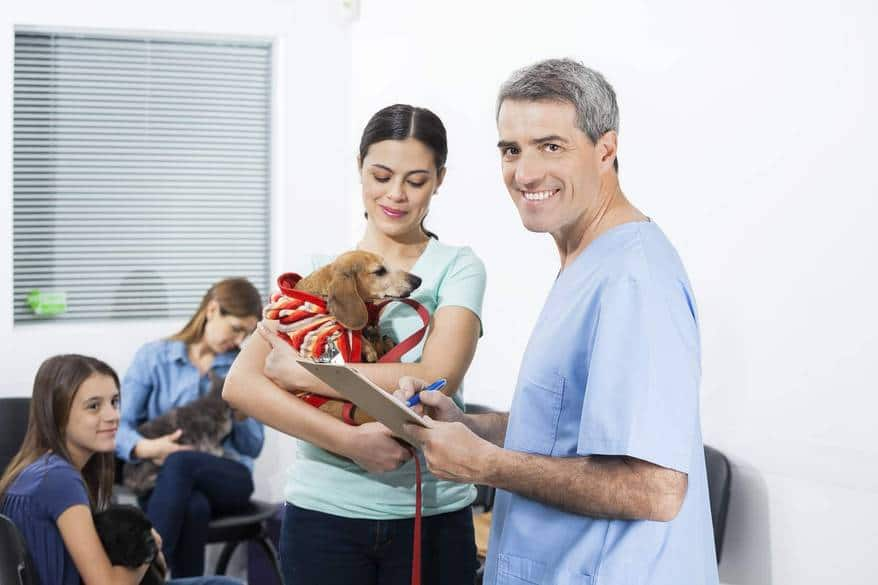
Ideally, puppies should become socialized between seven weeks and four months of age. This is the period of development during which a dog's personality is formed, and the more a puppy sees, hears, smells and experiences during this time, the less fearful he'll be as an adult. If you're dealing with an older dog scared of vet appointments, it could be that he wasn't properly socialized during this critical time frame, or it could simply be that he acquired negative associations with going to the vet as a puppy. Either way, it's never too late to start getting your dog used to new sights, sounds and situations. Seize every opportunity to introduce him to new people, pets and experiences. If your dog becomes fearful and aggressive, you may need to use a muzzle until his fear response goes away. You can also talk to your vet to see if he or she has any methods for acclimating your dog to the environment that has worked for other dogs in the past.
Desensitize Your Dog to Touch
It's inevitable that your pooch will be held, poked and prodded when at the vet, which can be especially scary if he's not used to it. Animal Behavior College recommends spending time handling your dog and getting him used to being touched all over. Once he's relaxed, begin by gently handling his ears and paws, touching his lips and opening his mouth. Reward him with treats and plenty of praise as you go to help create positive associations with being handled.


Tasty Tips
Make Car Rides No Big Deal
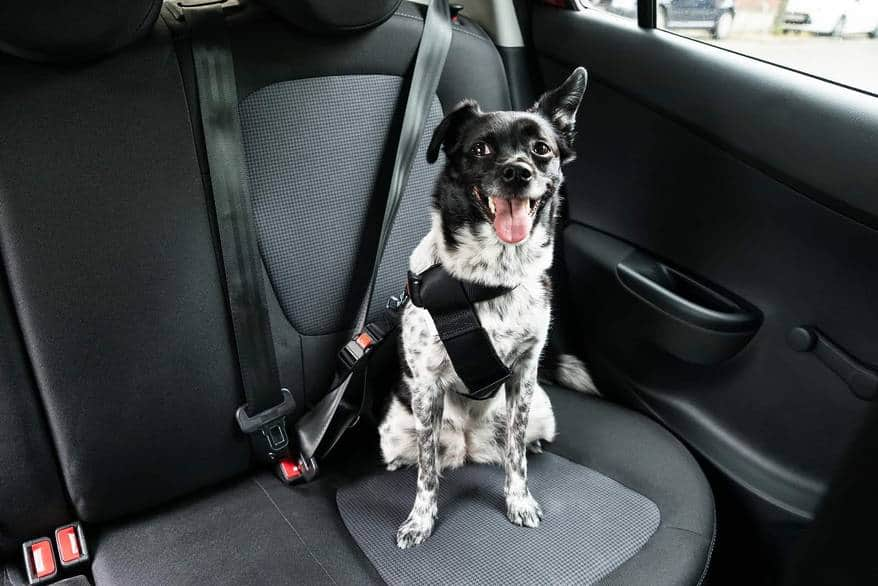
For many dogs, a stressful vet visit begins with getting into the car. This is because trips to the vet may be the only time they ever travel by car. You can help your dog be more relaxed at the vet by making car rides fun. Start with short trips around the block. Then, work up to going to fun places like the dog park or the pet store. Be sure to provide plenty of positive reinforcement along the way. Once car trips start having happy endings for your pup, he'll most likely begin looking forward to hopping in for a ride. Always make sure to follow proper car safety for your dog too, to make him comfortable and safe; this can help ease any extra anxiety he might get.
Make the Vet Fun
Just as you can change your dog's associations with car rides from bad to good, you can do the same with the vet's office by taking him there for social calls between appointments. Call ahead and give the staff a heads up before you visit, and try to go at a time that's typically not busy so the doctors and techs will have time to shower your dog with attention. The AKC adds that it's a good idea to spend a few minutes just hanging out in the waiting room, allowing your dog to watch the other pets coming and going and to get used to the sounds and smells. Be sure to reward him when he's calm and relaxed, and ignore whining or anxious behavior.
Let's face it: there are some aspects of going to the vet that will never be fun for your dog. But if you're willing to work diligently to help your pup overcome his fear, he'll feel safer and more relaxed, making vet visits a much more pleasant experience for both of you.


Jean Marie Bauhaus is a pet parent, pet blogger, and novelist from Tulsa, Oklahoma, where she usually writes under the supervision of a lapful of fur babies.
Related products

Hill's Science Diet Sensitive Stomach & Skin Small & Mini dry dog food is tailored nutrition for Small & Mini dogs while being gentle on stomachs. Nourishes skin & promotes a lustrous coat.

Advanced nutrition to support hip & joint health from day 1

18% lower calories vs. Science Diet Large Breed Adult
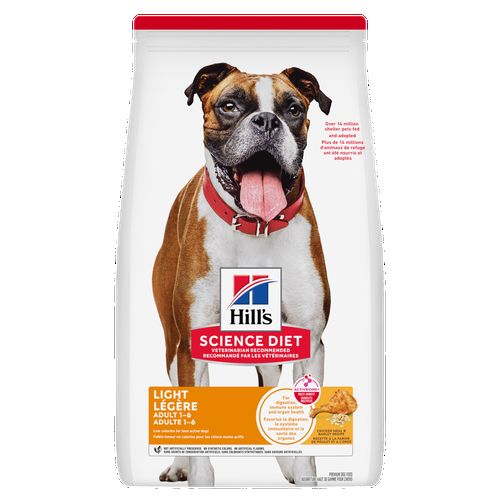
18% lower calories vs. Science Diet Adult
Related articles

Discover how the field of dog science is giving us more and more insights into the inner workings of our furry best friends.

Learn how dogs with sensitive skin can have special dietary needs, how they can develop over time in a healthy dog, and how Hill's dog food can help.

Learn basic steps & precautions for treating a cut on your dog, including what you can put on the cut, and when you should take them to the vet.

Your dog's coat and skin are a big part of your dog's overall health. Ensure you keep your dog's coat healthy, by following these simple tips.

Put your dog on a diet without them knowing
Our low calorie formula helps you control your dog's weight. It's packed with high-quality protein for building lean muscles, and made with purposeful ingredients for a flavorful, nutritious meal. Clinically proven antioxidants, Vitamin C+E, help promote a healthy immune system.
Put your dog on a diet without them knowing
Our low calorie formula helps you control your dog's weight. It's packed with high-quality protein for building lean muscles, and made with purposeful ingredients for a flavorful, nutritious meal. Clinically proven antioxidants, Vitamin C+E, help promote a healthy immune system.

